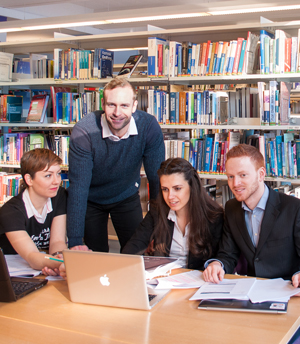
The four students accepted the invitation to participate in Nespresso’s competition to make coffee production more environmentally friendly.
“We were a great team and had previously worked with the optimisation of coffee machines, so we thought it sounded like an exciting challenge alongside our studies,” says Søren Westh Matthesen. He is one of the four members of the international group, which in addition to Søren consists of Angelina Stoyanoca, Christina Kaloudaki-Pangidou and Marcus Borseman.
Make the coffee more green
The four students were assigned the task to make Nespresso’s supply chain more CO2 friendly in the long run.
“We were provided with a case from the company with their current supply chain, which we supplemented with our own research regarding coffee production and sustainability. We proposed a comprehensive strategy which dealt with relevant problems throughout Nespresso’s supply chain,” says Søren.
Expert in coffee
During the project, the students became experts in coffee production and the various processes related to the extraction of coffee from the plant.
“With our strategy, we examined both the cultivation by the coffee farmers, the processing with the buyers, the possibility of recycling packaging and a marketing strategy that makes consumers aware of the necessity of CO2-friendly coffee,” he says.
“We examined, among other things, the opportunity to recycle residual waste, as this has great potential to reduce CO2-emissions. We suggested using the coffee pulp to fertilise the fields, so the farmers can reduce the use of artificial fertilisers. Simultaneously, we examined the drying process for which we recommended the use of solar cells instead of electricity, fuel, and oil which is currently used.”
Motivational and topical project
For each of their proposed solutions, the students described advantages, disadvantages and funding so they could identify the importance for the parties involved.
“It has been a great learning process. It has also been exciting to work with a real case and the theory in practice on a topical subject. Energy and environmental issues are extremely popular subjects at the moment and we always incorporate this aspect in the solutions we propose,” he says and continues:
“I believe it was our advantage to combine the business part and the engineering aspect. We have implemented the technical aspect in the solution in contrast to many of the other projects that might have focused on hard-core business. Therefore, we have been very practical with our solution.”